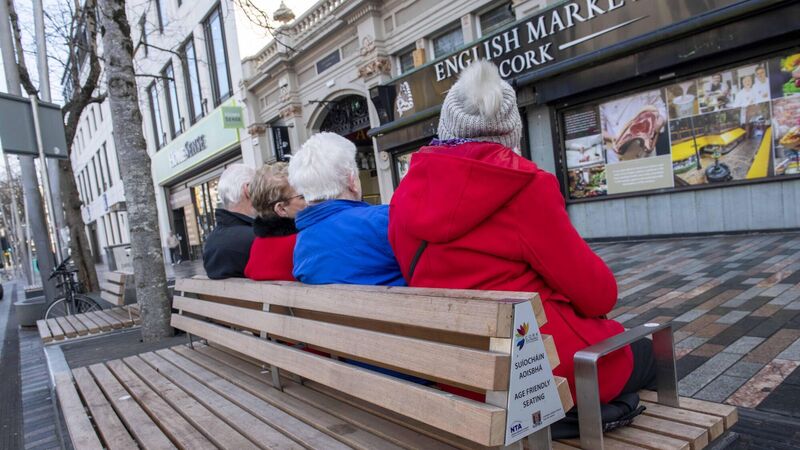Michael Moynihan: So much street furniture in Cork and still nowhere to sit

Pensioners sitting outside the English Market in Cork city. There was never as much seating to be found on the streets of Cork, but there aren’t too many places you can sit down, paradoxically.
Mature readers may recall Klondyke (Jeremiah Healy), one of Cork civil life’s more colourful characters.
A councillor back in the forties, Klondyke had a strong focus on one issue: the provision of a public toilet for women in the city. Legend has it his rallying call was topical for the time (‘they are building arsenals all over Europe, all we want is one urinal’).















